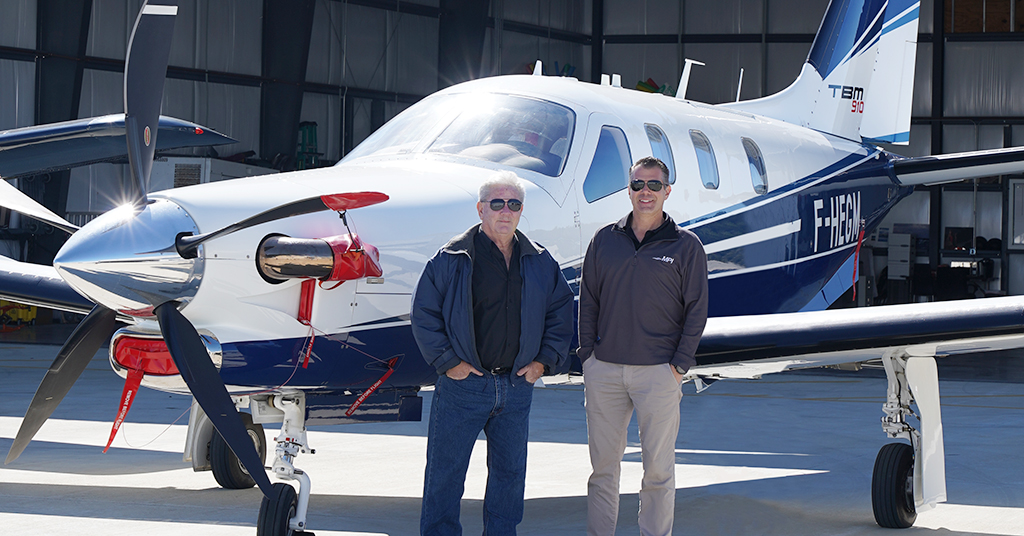Flying an airplane is an extraordinary experience that brings a sense of freedom and exhilaration.
For those who have obtained their private pilot certificate, the thrill of soaring through the sky is already embedded in their hearts. However, why stop there? Even if you are content with flying solely for recreational purposes, there are still several practical reasons for considering pursuing a commercial certificate.
One potential benefit of earning your commercial certificate is that it may lower your insurance costs. Insurance providers place great importance on experience and training, recognizing that a well-prepared pilot is less likely to be involved in an incident or accident. By obtaining a commercial certificate, you demonstrate to your insurance company that you have gone the extra mile in your aviation journey, instilling in them a sense of confidence in your flying. Consequently, this increased credibility results in lower premiums, allowing you to save substantial amounts of money in the long run.
While financial considerations can be significant, the love of flight itself is often what compels pilots to continue their training and embark on the journey of acquiring a commercial certificate. Flight training is not only fun but also an opportunity for continuous growth and learning. As pilots, we should always strive to expand our knowledge and enhance our skills. Pursuing a commercial certificate allows you to delve deeper into the intricacies of aviation, gaining invaluable insights into aircraft systems and maneuvering techniques. These newfound skills will not only make you a more accomplished pilot but also significantly increase the safety and security of your flights.
Moreover, obtaining a commercial certificate opens up a plethora of exciting career possibilities. With this certificate in hand, you can venture into a world where flying becomes not just a passion but also a livelihood. The aviation industry offers a vast array of job opportunities, far beyond that of a traditional airline pilot. You can explore roles such as that of a corporate pilot, air ambulance pilot, banner tow pilot, or even a flight instructor (though you will need to complete your flight instructor certification to work as a CFI). Imagine the satisfaction of being able to share your passion for aviation with others, while simultaneously earning a living doing what you love!
In order to achieve your commercial pilot certificate, candidates must fulfill the prerequisites outlined by the Federal Aviation Administration (FAA). These include being at least eighteen years old, holding a private pilot certificate, and accumulating the necessary flight hours. For single engine commercial certification, aspiring pilots need a minimum of 250 flight hours, which encompass a combination of specific flight types, including cross-country flights, instrument training, and solo flights. Additionally, they must pass both a written examination on aeronautical knowledge and a practical test, commonly referred to as a checkride.
Completing the training for a commercial certificate not only equips pilots with technical skills but also helps them develop a professional mindset. Safety is paramount in aviation, and pilots are trained to prioritize it above all else. The training instills in them a sense of responsibility, discipline, and situational awareness, traits necessary for making sound judgments and operating aircraft in diverse conditions.
If you already own an airplane, the opportunity to utilize your own aircraft during commercial training is an additional advantage. Familiarity with your own aircraft not only instills an added level of comfort but also allows you to master the intricacies of your specific model. This intimate knowledge of your airplane enhances your overall flying abilities and proficiency. Moreover, using your own aircraft for training purposes can potentially contribute to cost savings, as you eliminate the need to rent an unfamiliar aircraft.
Earning a commercial certificate as a private pilot offers a multitude of benefits. Beyond the realm of financial advantages, such as reduced insurance costs and the potential for lucrative job opportunities, obtaining a commercial certificate enables continuous growth and improvement as a pilot. It equips you with invaluable knowledge about aircraft systems and grants you added experience with important maneuvers.
Even if you are not seeking a career in the aviation industry, if you find immense joy in flying, pursuing a commercial certificate is still a compelling choice. It broadens your horizons, enhances your skills, and allows you to fully embrace the magic of flight.










